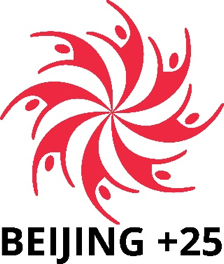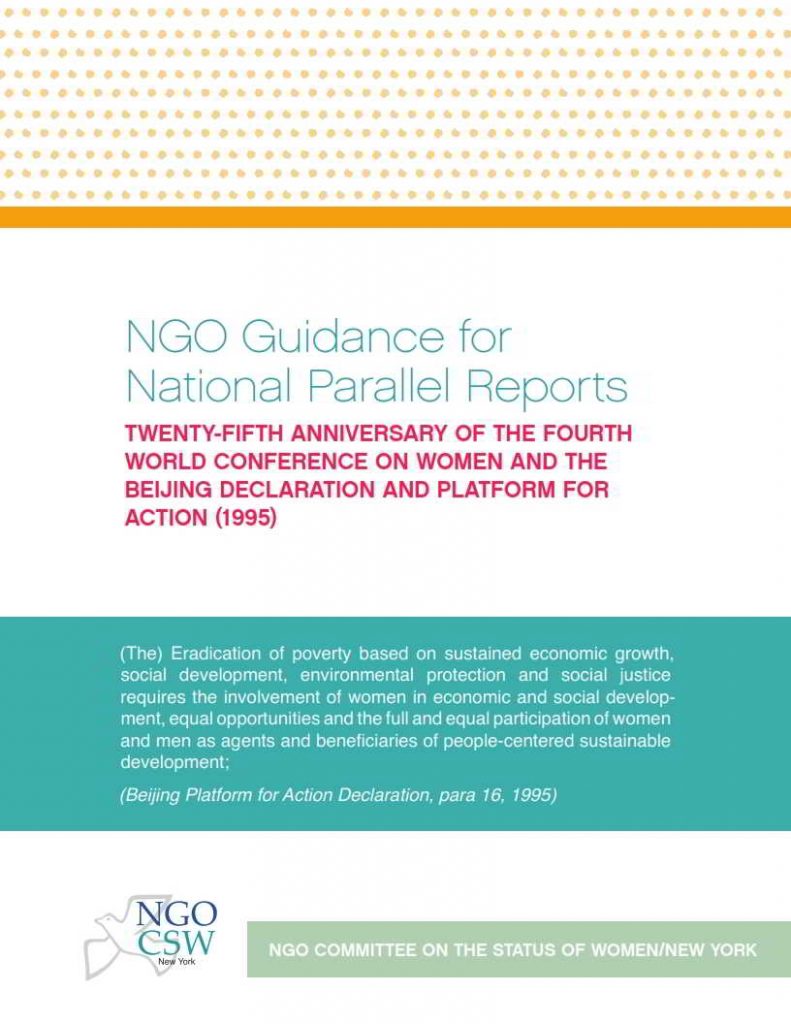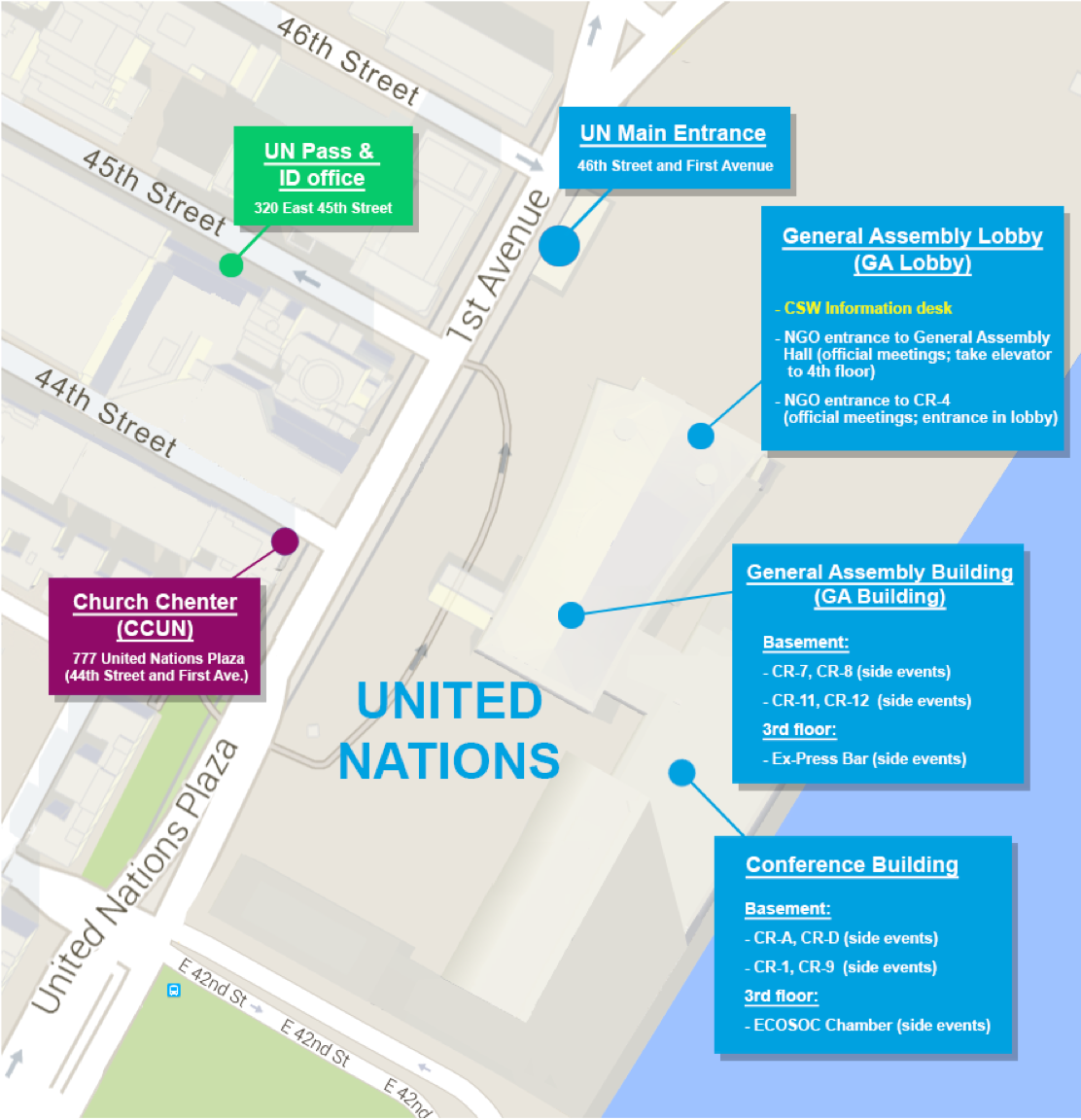
(Source UN women – 8 July 2019)
As you know, 2020 will be a critical year for the gender equality and women’s rights agenda, marking not only the 25th anniversary of the adoption of the Beijing Declaration and Platform of Action but also the 20th anniversary of UN Security Council resolution 1325 on women, peace and security; the 5-year milestone of the 2030 Agenda for Sustainable Development and the SDGs; the 10th anniversary of the creation of UN Women – all this in the context of the 75th anniversary of the United Nations.
We must take full advantage of these milestones to drive accelerated action and progress for women and girls. And UN Women is committed to ensuring civil society is at the forefront of this work.
Intergovernmental process and outcomes
National reviews are well under way, based on the guidance note that had been developed by UN Women in collaboration with the regional commissions last year. So far, we have approximately 100 reports submitted. These reports will inform the regional syntheses prepared by the Regional Commissions ahead of regional meetings later this year. They will also feed into a global synthesis report of the Secretary-General, prepared by UN Women, which will form the basis of deliberations at CSW 64 in March 2020. It is expected that the CSW will adopt a short, action-oriented Political Declaration.
In addition, the General Assembly has decided to hold a High-Level Meeting on Beijing+25 during the UNGA high-level week in September 2020. Member States are currently discussing modalities for the meeting, under the leadership of the Permanent Representatives of Qatar and New Zealand.
More information on the intergovernmental process can be found on this page.
Engagement of civil society and other stakeholders
As noted above, the active engagement of civil society and other stakeholders is a critical component of our efforts for Beijing+25. The guidance note for national reviews highlighted the importance of participatory reviews, which include multiple stakeholders. Further, all regional intergovernmental meetings will be preceded by a preparatory multi-stakeholder meeting to capture the voices of civil society. The Civil Society Division at UN Women, working in partnership with our regional offices, is providing technical and financial support for the preparatory meetings.
The engagement of civil society and other stakeholders will be further highlighted in the Generation Equality Forum, convened by UN Women and co-chaired by France and Mexico, with the leadership and partnership of civil society. Building on the Beijing+25 national and regional reviews and CSW64, the Forum will kick-off in Mexico in May 2020 (7th-8th May, likely) and culminate in Paris on 7th-10th July 2020.
The Forum is envisaged as a global public conversation for urgent action and accountability for gender equality. It will celebrate the power of activism, feminist solidarity and youth leadership to achieve transformative change. At a moment when the pushback on multilateralism and women’s rights is strong, the unique democratic and multi-stakeholder approach of the Forum will be a necessary counter response. This new model for accelerating the achievement of agreed goals on women’s rights and gender equality, through its outcomes – the setting up of Action Coalitions – results oriented hybrid partnerships among civil society, business, member states and other stakeholders (parliamentarians, mayors, trade unions etc.), is needed at a time when many of the existing models are vulnerable to the current backlash against women’s rights in some contexts, and to the way that multilateral forums are subject to the changing political preferences of their members.
On 27-28 June, UN Women convened France, Mexico and some members of civil society in the first planning meeting for the Generation Equality Forum. We had an excellent workshop and arrived at a common understanding of the vision, outcome, format of the Forum; its legacy; its governance structures; workstreams, timelines and next steps. More information on that can be found in the attached presentation. One of the crucial next steps is to identify the ways civil society can engage with the planning and execution of the forum. As such, we have proposed the following structures where civil society will be involved:
- Core Group (decision making) – 4 members comprising 1 each from UN Women, France, Mexico and Civil Society. Civil Society to designate 1 member from the Civil Society Advisory Group (see below) who may rotate.
- Civil Society Advisory Group to the Core Group (supporting Core Group decision making) – 10-15 civil society members representing regional (and thematic) diversity. This structure to be established by August 2019; membership of this group will be determined by civil society through a consultative process. The advisory group will nominate one representative to the Core Group (above). We have requested NGO -CSW New York to convene all our civil society partners (including youth partners) to consult with each other and agree on the membership of this group.
- Multi-stakeholder Steering Group (supporting design, planning and implementation) – approx. 25-30 members comprising civil society, Member States, private sector and other stakeholders who are contributing to the Forum and its outcomes. To be established by end-August 2019. This structure will be established by the Core Group in consultation with partners.
UN Women will continue to update civil society, through focal point emails and also through periodically scheduled webinars, on the status of the Forum, to ensure wide reach and participation.
Keep checking this webisite for more information.
(Source UN women – 8 July 2019)
 CSW64 / Beijing+25 (2020)
CSW64 / Beijing+25 (2020)




